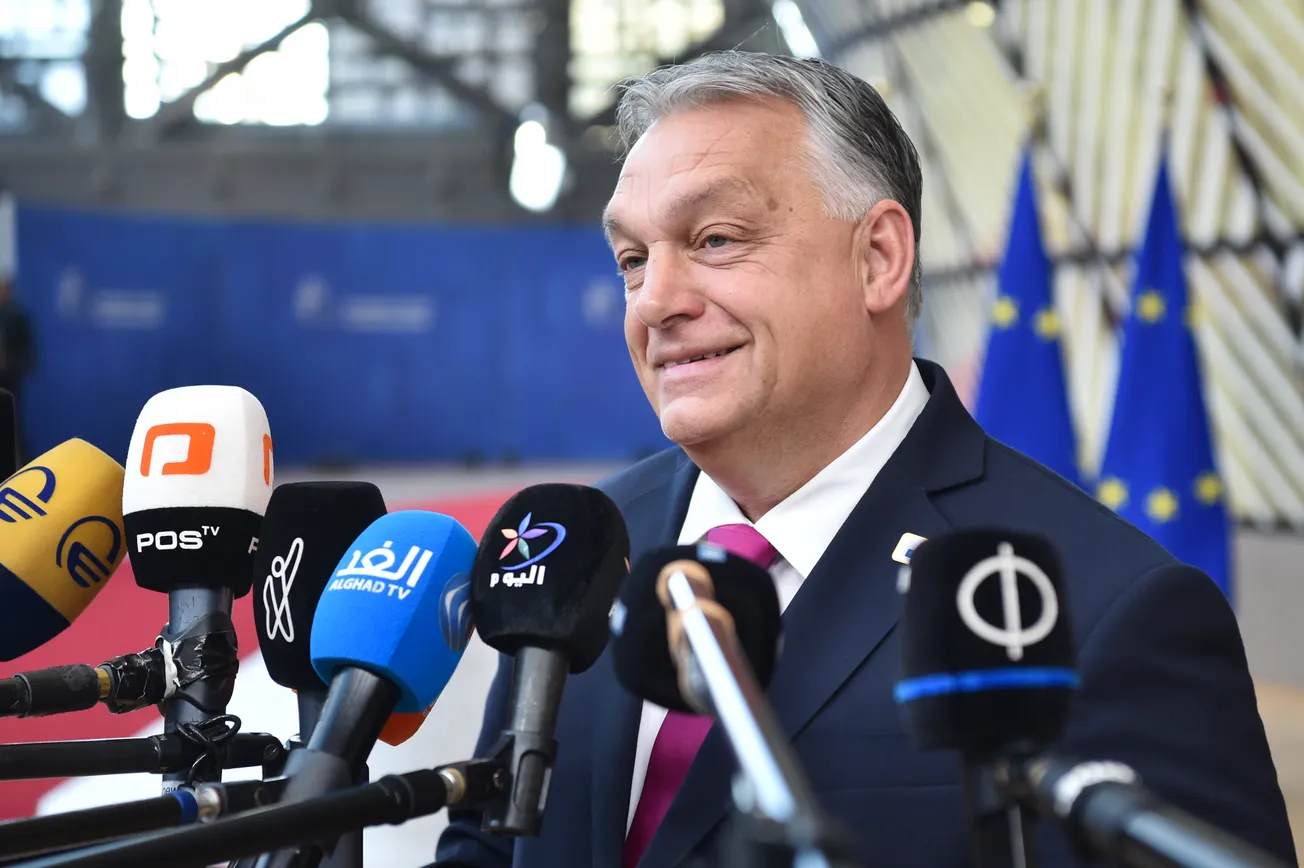The European Union suffered a setback in its efforts to force through its Ukraine policy at the EU Summit. Hungarian Prime Minister Viktor Orbán blocked €50 billion in EU aid for Ukraine. He did not have to use his veto, which would have been even more embarrassing for the EU, since it was decided not to take a vote on it, instead leaving the issue open. The day before, the EU unblocked aid to Hungary, which was widely considered a bribe, but Orbán took the money and maintained his opposition. The issue nonetheless will be taken up again next year. Politico reports that Orbán’s non-vote resulted from a sinister move by German Chancellor Olaf Scholz, who suggested that Orbán should out and get a coffee, and while he left the room, the vote to initiate Ukraine’s accession into the EU was taken in Orbán’s absence. The alleged treachery by Scholz has not been confirmed by Orbán.
“With 26 countries we agree. There is no agreement from Hungary at the moment, but I am very confident for next year,” said Dutch Prime Minister Mark Rutte. Rutte, whose party lost in the last election, might not be Dutch Prime Minister next year.
Orbán did not block accession talks and abstained from voting on the issue by walking out of the room. He is quoted as having said, “Hungary does not want to take part in this bad decision and therefore abstains today.” Nonetheless such talks normally take years and presumably will have to wait until the war ends and its current existence as a state is in question, especially since it will not be getting the €50 billion in aid anytime soon.
Orbán posted a video on social media, denouncing it as “a completely senseless, irrational and wrong decision” but complained that “26 other countries have insisted this decision be taken.”
The other EU leaders agreed to launch accession talks with Moldova, which will also take years, since it is not exactly a stable state, given the Transnistria issue. A number of other nations have been waiting to begin accession talks for many years, or decades as in the case of Türkiye.
This is far from the end of the story, because the next step in the accession process is an EU-wide agreement for a negotiating framework, which also has to be voted on.
Another failure of the European Commission was its proposed mechanism of using frozen Russian assets.The Summit “took note” of it but failed to approve it.






